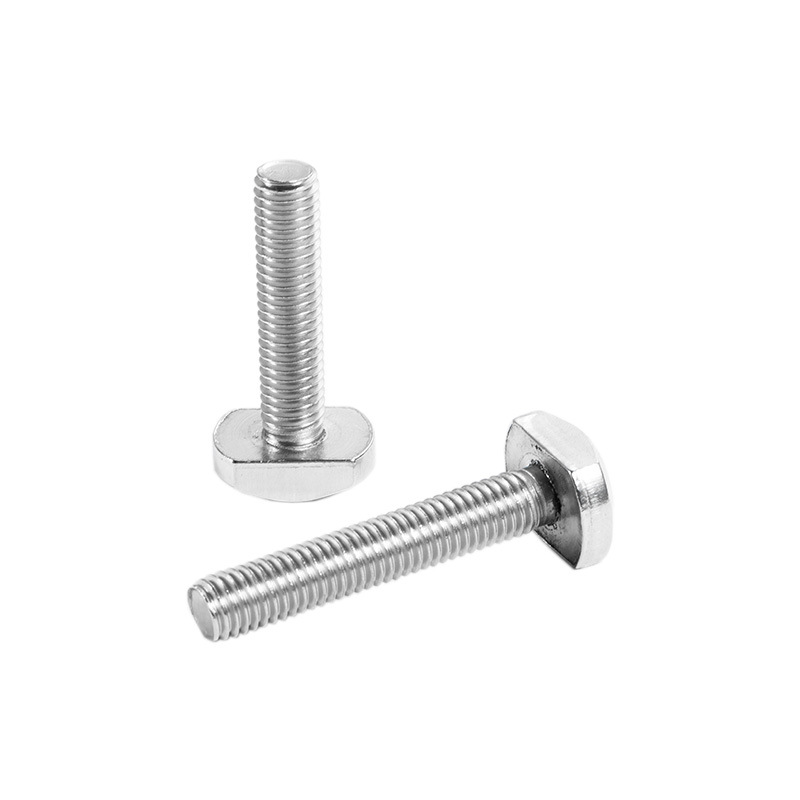

Guide to Choosing the Right Self-Tapping Screws for Metal Applications and Their Sizes
Jul . 28, 2024 12:00 Back to list
Guide to Choosing the Right Self-Tapping Screws for Metal Applications and Their Sizes
Choosing the Right Self-Tapping Screws for Metal A Comprehensive Guide
Self-tapping screws are essential fasteners widely used in various applications, especially in metal construction and repair. Their unique design allows them to create their own thread in the material they are driven into, making them highly efficient for metalworking tasks. When selecting self-tapping screws for metal, it’s crucial to understand the various sizes, types, and applications to achieve the best results.
Understanding Self-Tapping Screws
Self-tapping screws are designed with sharp, pointed ends that enable them to penetrate metal surfaces without prior drilling. As they are driven into the material, these screws tap their own threads, creating a secure hold. They are available in numerous sizes, lengths, and head styles, allowing for a wide range of applications.
Sizes and Specifications
Self-tapping screws for metal come in various sizes, typically measured by both diameter and length. The diameter can range from 0 (1/16 inch) to 14 (approximately 3/16 inch) or larger, while the length can vary from 1/4 inch to several inches, depending on the project requirements.
When choosing the size of a self-tapping screw, consider the following factors
1. Material Thickness The thickness of the metal you are working with will significantly influence the size of the screw. Generally, for thinner materials (up to 1/8 inch), shorter screws (around 1/2 inch) may suffice. For thicker materials, opt for longer screws to ensure a secure grip.
2. Load Requirement The intended load or weight that the screws will support also plays a vital role. For heavy-duty applications, selecting larger diameter screws can provide better strength and stability.
3. Required Grip The grip length (the part of the screw that goes into the material) should be carefully calculated based on the thickness of the metal. The screw should be long enough to ensure a strong hold without protruding excessively on the other side.
Types of Self-Tapping Screws
self tapping screws for metal sizes

There are several types of self-tapping screws designed for specific metal applications
1. Thread Cutting Screws These screws are designed to cut their own threads as they penetrate the material. They are ideal for softer metals and are often used in sheet metal applications.
2. Thread Forming Screws Instead of cutting threads, these screws displace material to create their own threads. They are generally used for harder metals and provide greater holding power.
3. Sheet Metal Screws These screws feature a sharp point and coarse threads, making them suitable for attaching metal sheets together. They come in various sizes and are commonly used in HVAC and automotive applications.
Installation Tips
To effectively use self-tapping screws on metal, consider the following installation tips
- Pre-Drilling For thicker metals or harder materials, pre-drilling a pilot hole can help ease the installation process and reduce the risk of damage.
- Proper Torque Use an appropriate power tool set to the correct torque value to prevent stripping or breaking the screw.
- Corrosion Resistance If working in environments prone to moisture or chemicals, choose screws made from stainless steel or coated with rust-resistant materials to ensure longevity.
Conclusion
Selecting the right self-tapping screws for metal applications requires careful consideration of size, type, and installation methods. By understanding these factors, you can enhance the structural integrity of your projects and ensure the durability of your fastenings. Whether you are an industry professional or a DIY enthusiast, mastering the use of self-tapping screws in metal can significantly improve the quality and safety of your work.
Latest news
-
High-Strength Hot-Dip Galvanized Bolts-Hebei Longze|Corrosion Resistance&High Strength
NewsJul.30,2025
-
Hot Dip Galvanized Bolts-Hebei Longze|Corrosion Resistance&High Strength
NewsJul.30,2025
-
Hot Dip Galvanized Bolts - Hebei Longze | Corrosion Resistance, High Strength
NewsJul.30,2025
-
High-Strength Hot Dip Galvanized Bolts-Hebei Longze|Corrosion Resistance, Grade 8.8
NewsJul.30,2025
-
Hot Dip Galvanized Bolts-Hebei Longze|Corrosion Resistance,High Strength
NewsJul.29,2025
-
High-Strength Hot Dip Galvanized Bolts - Hebei Longze Metal Products Manufacturing Co., Ltd.|corrosion resistance&high strength
NewsJul.29,2025

